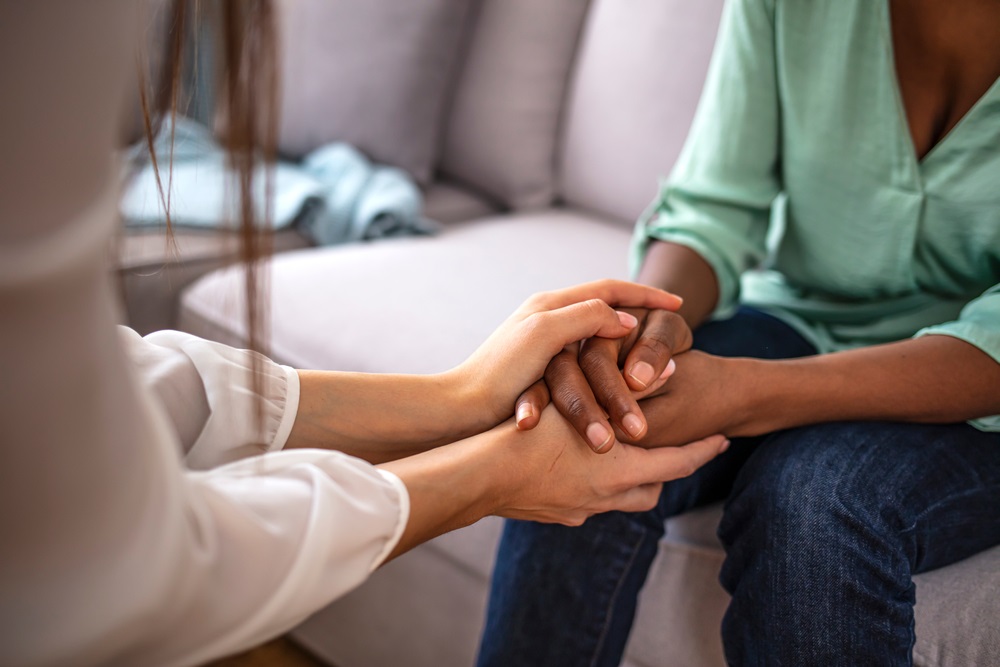Forgiveness might seem like something only the very kind or the saintly can do. Still, it’s a practical tool for overcoming hurt and finding peace within ourselves. When we forgive someone, we’re not saying that what they did was okay. Instead, we’re letting go of our grudges so these old pains don’t keep hurting us.
This guide explores how forgiveness can help emotional healing, offering step-by-step advice on letting go of the past and starting a journey toward peace and freedom. By understanding forgiveness, we can rebuild our emotional lives and create a healthier future.
Contents
The Essence of Forgiveness in Healing
Forgiveness isn’t just something you do once; it’s an ongoing journey away from bitterness and towards peace. It starts with realizing that holding onto the past can poison our present and future. This section explores why forgiveness is crucial for emotional health and how it can transform our lives. By looking at the psychological benefits of letting go of grudges, we see how forgiveness opens the door to new beginnings, personal growth, and happiness.
Understanding Forgiveness and Its Impact on Well-being
Forgiveness helps us heal deeply, lifting the heavy weight of bitterness. When we choose to forgive, we break free from the cycle of anger and pain that can drag us down. This frees us up for better mental stability and a more hopeful outlook. Forgiveness reshapes how we react emotionally, pushing us to be more understanding and kind to others and ourselves.
The Science Behind Forgiveness
Research shows that forgiving people can make you mentally and physically healthier. Studies have found that it lowers stress, reduces blood pressure, and strengthens the immune system. It also leads to better sleep and fewer signs of depression. This makes forgiveness a key practice for anyone wanting to improve their health.
Navigating the Forgiveness Process
The journey to forgiveness is personal and varies from person to person. It involves many steps, from feeling the initial pain to finally letting go, and each step requires patience and kindness toward oneself. By understanding these steps and following practical advice, we can better manage our emotions and truly move past old hurts.
Recognizing the Hurt and Accepting the Pain
The first step towards forgiveness is to acknowledge and accept the pain others have caused. This is tough because it means facing painful emotions and admitting vulnerability. By acknowledging the hurt, we validate our feelings, which is important for understanding the situation and starting to heal.
Empathy and Understanding: Keys to Unlocking Forgiveness
Empathy is crucial in forgiving others. By trying to see the situation from the other person’s perspective or understanding their struggles, we can start seeing things differently, making forgiving easier. Empathy helps us see everyone as human, even those who’ve hurt us, which can soften our anger and make room for compassion.
The Role of Self-Forgiveness in Emotional Healing
Forgiving ourselves is just as important as forgiving others. Self-forgiveness is key to overcoming guilt and avoiding being stuck in self-blame. It helps us move beyond our mistakes and accept ourselves, vital for emotional well-being.
Confronting Self-Blame and Cultivating Self-Compassion
Often, we’re too hard on ourselves, blaming ourselves for things beyond our control. Learning to be kind to ourselves can help heal these feelings. Self-compassion builds resilience, making it easier to handle life’s ups and downs without harsh self-criticism. By forgiving ourselves, we free ourselves from self-blame and start seeing ourselves more positively.
Practical Steps Towards Self-Forgiveness
Actions like writing in a journal, meditating, and seeking professional help can aid in self-forgiveness. These activities allow us to work through our feelings and develop a healthier relationship with ourselves. Writing helps us sort out our thoughts, meditation calms our minds, and talking to a professional guides us through healing.
Strategies for Practicing Forgiveness Every Day
Making forgiveness a part of daily life takes effort and commitment. Regularly practicing forgiveness ensures that we are actively working towards lasting peace and happiness.
Daily Reminders and Affirmations
Daily reminders or affirmations can keep us focused on forgiving. Phrases like “I choose to release the past” or “I am open to peace and healing” remind us of our goals and help maintain a mindset of forgiveness.
Creating a Forgiveness Ritual
Setting up a personal forgiveness ritual can be very helpful. Writing down names and what they did, then letting them go symbolically, can help us let go emotionally. This ritual makes our commitment to moving on tangible and can be a powerful way to release pent-up emotions.
FAQs
Forgiving someone who has deeply hurt you is undoubtedly challenging. It’s important to recognize that forgiveness is a process, not something that can happen overnight. Give yourself time and be patient with your feelings. Holding onto resentment hurts you more than it affects the other person.
The time it takes to forgive and heal emotionally varies greatly from person to person and depends on the nature of the offense and your circumstances. Forgiveness is a personal journey that involves many emotions, including anger, sadness, and eventual acceptance.
Yes, it is possible to forgive someone without reconciling. Forgiveness is about letting go of your pain and anger; it doesn’t necessarily mean you must rebuild a relationship with the person who wronged you. You can forgive someone and still choose to keep your distance if you feel that’s the best decision for your mental health and well-being.
Forgiveness has a positive impact on your physical health. Research has shown that letting go of grudges and bitterness can lead to better heart health, lower blood pressure, reduced stress and anxiety, and stronger immune system functioning.
Forgiving yourself involves recognizing that everyone makes mistakes and that mistakes are part of being human. Start by acknowledging the mistake and accepting that you can’t change the past. Reflect on what the experience taught you and how it can inform your future decisions. Practice self-compassion by treating yourself with the kindness and understanding you would offer a friend.
Conclusion
Forgiving isn’t just about getting over old hurts—it’s about taking back your life and happiness. Learning to forgive frees us from past pains and opens new opportunities for joy and peace. Whether forgiving others or ourselves, each act of forgiveness brings us closer to a more fulfilled and emotionally healthy life. The journey of forgiveness doesn’t erase the past, but it can reshape our future.
If you’re inspired to begin your journey toward healing and forgiveness, Yrma Wilson’s energy healing can guide you. Experience personalized support that helps you release past hurts and embrace a future filled with peace and happiness. Visit Yrma Wilson’s Energy Healing Services today to discover how you can transform your emotional well-being and unlock your path to inner joy. Book an appointment today.


